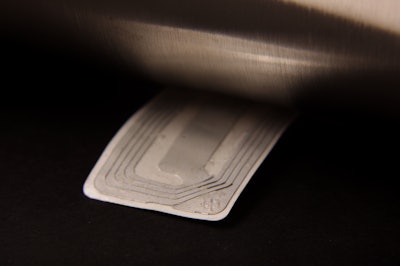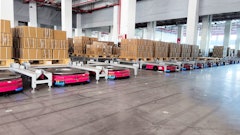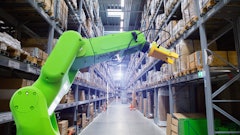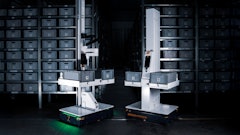
Efficient inventory management is not a luxury, it's a necessity. Since the surge of e-commerce and the age of post-COVID consumerism, traditional methods of inventory tracking have taken a backseat for their time-consuming nature and vulnerability to errors.
Enter RFID.
RFID technology utilizes radio waves to identify and track objects equipped with tags which contain electronically stored information that can be wirelessly read and captured by readers. One key advantages of RFID is the ability to automate inventory management processes. With this, businesses can create a digital inventory database that provides visibility in real-time, influencing decision making when it comes to stock replenishment, order fulfillment and supply chain optimization.
RFID's ability to manage inventory extends to improving security and traceability throughout the supply chain, offering businesses numerous benefits to streamline operations and ensure compliance. Kevin Beasley, CIO at VAI, explains that efficiency, accuracy, security and cost-saving are all lumped into those advantages.
"RFID receivers identify tags at a distance, significantly reducing staff time and improving operational efficiency. Modern RFID solutions have shown 10–15% reductions in inventory-related labor hours. RFID implementation reduces annual inventory fluctuations, with an accuracy of up to 300% in a single year, and modern RFID solutions have shown more than a 25% improvement in inventory accuracy," says Beasley. "Additionally, they offer end-to-end traceability in supply chains, ensuring compliance and consumer trust by verifying the authenticity of high-value items and facilitating the tracking of regulated substances during recalls. And despite initial implementation costs, RFID technology delivers substantial long-term benefits, mitigating losses due to inventory discrepancies and enhancing operational efficiency over time, leading to significant cost savings and improved financial performance. The average cost of an RFID tag has fallen by 80% to about four cents in the last decade."
Moreover, RFID has the ability to integrate into other smart systems. Beasley says, coupled with IoT systems, RFID technology provides comprehensive data on storage parameters such as temperature and humidity, equipping businesses with actionable insights to optimize inventory management practices and facilitate strategic decision-making.
So, it's more than just a tracking system. RFID technology represents a solution for inventory management with substance. Looking ahead, integrating RFID with things like AI and IoT, Beasley explains, promises even greater innovation in inventory and supply chain management. Businesses can navigate current regulatory demands while “future-proofing” their operations to prepare for industry standards, ensuring operational optimization in an increasingly digitalized marketplace, and as technology continues to evolve, RFID is poised to develop into a synonymous player in the game of inventory management.















![Pros To Know 2026 [color]](https://img.sdcexec.com/mindful/acbm/workspaces/default/uploads/2025/08/prostoknow-2026-color.mduFvhpgMk.png?ar=16%3A9&auto=format%2Ccompress&bg=fff&fill-color=fff&fit=fill&h=135&q=70&w=240)




